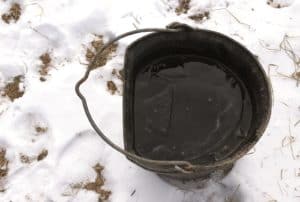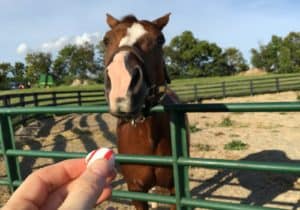
Taking the Edge Off: Calming Supplements for Horses
Learn which calming supplement ingredients work and things to consider before choosing or administering a product to your horse.

Learn which calming supplement ingredients work and things to consider before choosing or administering a product to your horse.

One reader wants to know how she can manage her metabolic horse that is also prone to gastric ulcers. Here’s what she should consider.

Find out why your horse might be more prone to impaction colic during winter and how you can reduce the risk.

How to ensure the late-gestation mare is getting enough nutrients to meet both her needs and those of the developing fetus.

An equine nutritionist explains why beet pulp might be a useful addition to your senior horse’s diet, especially during colder months.

When the temperatures drop, make sure your horses always have access to water and are drinking enough.

Freezing and storing fecal microbiota transplant product in saline and glycerol might maintain the most viable microbial communities for horses with intestinal problems.

Proper storage techniques help prevent spoilage, preserve nutrients, avoid mold, and protect against pests, helping your horse’s health and maximizing your investment.

Learn how to calculate the amount of forage your horse or pony needs to achieve a healthy weight and what types of hay might be best for weight loss.

Find out what health conditions overweight horses might be more likely to develop and how you can help your horse safely lose weight to improve his performance.

Performance horses’ lifestyles put them at a greater risk of developing gastric ulcers. An equine nutritionist explains how to combat this.

An equine nutritionist describes how to promote weight loss in horses that cannot be ridden.

Discover safe, low-sugar treat options for laminitic horses to satisfy your inclination to give them treats while preventing future episodes.

The stress of surgery and the management changes that follow can cause gastric ulcers in horses. An equine nutritionist describes possible solutions.

Do certain concentrates increase gastric ulcer risk? A nutritionist answers this commonly asked question.

Researchers believe adding alfalfa pellets to your horse’s diet might help manage and prevent ulcers in the lower region of the stomach.
Stay on top of the most recent Horse Health news with